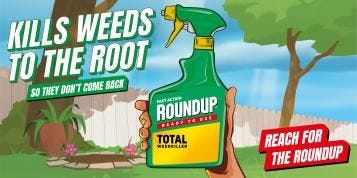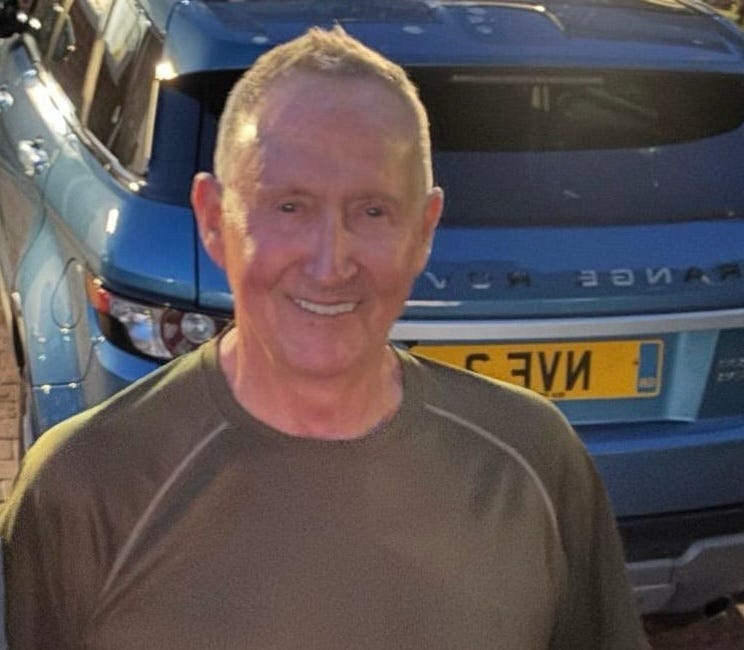Join us to get pesticides out of your neighbourhood
The chemical glyphosate is partially banned in Austria, France, the Netherlands, Belgium and Luxembourg - so why are so many councils here using it?
Good morning! I’m Sarah Hartley and this is The Northern Eco weekly update. As you’ve received this newsletter then either you subscribed, or someone forwarded it to you. If the latter, then you can click on this handy little button below.
Today’s newsletter takes a different format from the usual as we launch the campaign we’ll be following for at least the rest of 2025 in this dedicated new section. In the weeds will be looking at pesticide use in public spaces, an issue so many people are concerned about. Next week’s newsletter will return to our usual format of links and a variety of stories but, for now, I hope you enjoy this long read and can help spread the word about this work.

All across the UK, in every region and nation, people are campaigning against their local council’s use of the pesticide glyphosate and today The Northern Eco is joining them.
We want to support them, amplify their cause and will campaign for a ban on the use of this pesticide in the public spaces we all access likes parks, paths and children’s play areas. We’re able to do this thanks to the generous support of the Tenacious Journalist Award we won earlier this year. So, in the coming months we’ll be featuring the work of campaigners, tackling the politicians and getting to grips with the data surrounding this issue. I hope you’ll join us!
What’s wrong with glyphosate?
Glyphosate, commonly known by its original trade name ROUNDUP (originally manufactured by Monsanto, now by Bayer), is the world’s most widely used herbicide (weedkiller). Glyphosate-based herbicides are manufactured by many companies in many countries.
Here in the UK, many local authorities use the pesticide to control weeds in public spaces but there are concerns about its impact both on the environment and on human health.
In most UK towns and cities it is currently impossible to avoid exposure to pesticides. However, a growing number of places around the world have already gone pesticide-free and are proving that it can be done.
In its report Impacts of Glyphosate Friends of the Earth notes that there are direct and indirect impacts on biodiversity where the pesticide is used:
“Other plants, animals, invertebrates (e.g. insects) and micro-organisms may also be exposed to glyphosate-containing herbicides.”
They give the example of insects flying through spraying, the pesticide washing into streams or falling from the plants onto the soil.
When it comes to human health, according to the Pesticide Action Network UK, which has been campaigning on this issue for many years, exposure to pesticides can cause a number of health effects. They are linked to a range of serious illnesses and diseases from respiratory problems to cancer.
In the US, people who believe they have been harmed by the substance have been going to court. According to the lawyers bringing cases in all 50 states, as of March 2025, Monsanto has reached settlement agreements in nearly 100,000 Roundup lawsuits. Monsanto paid approximately $11 billion. Bayer has negotiating block settlement arrangements with plaintiffs’ lawyers who have significant cases in the litigation… and by settling with plaintiffs before trial.
Why is it legal in the UK?

Many campaigners often find that the pesticide’s legally permitted status in the UK is what local authorities point to in order to justify the use of the chemical.
The government authorisation for the use of glyphosate here was due expire in December 2025 as the UK’s post-Brexit pesticides regulatory regime developed. However, just last month (March) the Health and Safety Executive announced that it needed more time for its assessment and so has moved this deadline to December 2026.
The European Commission decided to extend glyphosate's authorisation even further ahead for 10 years until 15 December 2033. However, member countries are permitted to apply different rules at national levels and some, such as Austria, France, the Netherlands, Belgium, Luxembourg, and Germany have introduced partial bans, prohibiting its use in certain areas.
Introducing some of the campaigners
Campaigners right across the UK are already raising their voices on this issue. We’ll bring you more details on their campaigns and will be working to connect them over the coming months.
This issue is felt so strongly there’s already 1,000+ Freedom of Information Act inquiries about made about glyphosate on the democracy website What Do They Know.
Among them is the team at Pesticide Free Balerno questioning Edinburgh City Council, an individual in Wales looking for answers from Ceredigion Council and another looking for help from Department of Agriculture, Environment and Rural Affairs in Northern Ireland.
And many, many more are raising petitions using Change.org - more than 1,000 globally to date!
Here’s just a few of those:
In North Shields, Anna Dresser is concerned about the impact on animals and started a petition on Change.org. She says: “Unfortunately since the council has used these, many animals, including cats, dogs and wildlife have become suddenly ill and/or died after contact with these areas of spraying.”
In Milton Keynes, Judith Heinemann’s petition has already attracted more than 26,000 signatures.
On the Isle of Wight, Mark Jefferies has started a petition after the council re-introduced glyphosate there after having previously stopped its use.
Closer to home, I caught up with two of the campaigners Katie Teakle and Colin Campbell who told us about their work.
Campaigner Katie Teakle, Cleethorpes
When Katie moved to Cleethorpes 40 years ago she saw the area as a haven for wildlife and an amazing place to bring up her young family who would wonder at the flocks of migratig birds.
Campaigner Colin Campbell, South Tyneside
“If you wouldn’t spray that into your pram, why are you basically allowing it to be sprayed on the wheels”
How to support this campaign
Campaigners: Lets join forces! Please do let me know about your activity. Whether you’re an organisation working in this area or a concerned individual - I want to hear from you! I’ve set up this dedicated email, glyphosate@thenortherneco.com, and there’s also a whatApp group. Drop me a line if you’d like to be added to that group or have any other news to share. Let’s map your hard work for all to see.
Readers: Please do use the share button above to alert others to the campaign.
We’ll publish updates as we have them in this dedicated section as well as via social media so you’ll always be up-to-date on the latest development. As always, we’d love to hear from you with your thoughts on this campaign and any tip-offs of or sugesstions for stories too. You can drop us an email or contact via social media or commenting below.
Journalists: The stories generated for the campaign are freely available using a Creative Commons Share and Attribution Licence. If you’ve campaigners in your area - but no time for an interview or follow up - drop me a line to see if we can collaborate. It could be that I can provide copy to you for free. Finally, if you’re a freelancer with a unique story about glyphosate, please do pitch me as I’ve a small commissioning budget too.
That’s all for now! The Tuesday newsletter will return to the normal format of links and a variety of topics next week
Don’t forget there are updates on the website and via social media through the week too!
Thank you for reading edition number 130 of The Northern Eco. If you feel having this independent, free unless you want to pay and ad-free newsletter is worth a few of your hard-earned £, now’s the perfect join our paying subscribers. The main newsletter is sent out at 7am every Tuesday and can’t exist without paying subscribers. 🙏






Glyophosate is a poison to Nature; joined-up thinking needed between us, to alert all others to its deleterious toxicity. A hum a buzz a slither a glub a hop a soar of thanks, from the front line of damage, to you Sarah